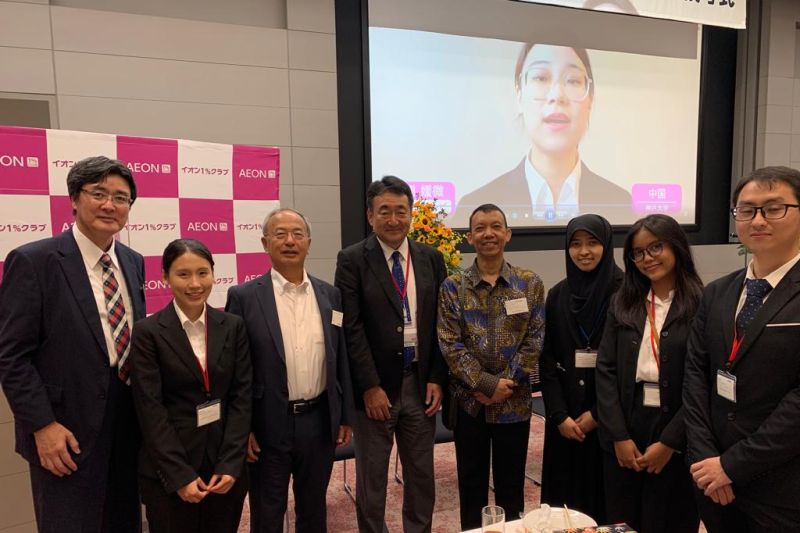JABAR EKSPRES – Three Indonesian students studying in Japan have won scholarships from the AEON 1% Club Foundation. The three students are Clarissa Elaine Kezia from the International University of Japan, Tah Andrew Ryan from Tohoku University, and Maryam Ghaniya Jasmine from Kyoto University.
Yusli Wardiatno, Education and Culture Attaché of the Indonesian Embassy in Tokyo, expressed his appreciation for the strong support from the AEON 1% Club Foundation in strengthening the 65-year relationship between Indonesia and Japan through education. According to him, educational cooperation between countries can strengthen friendship between nations and build global togetherness to create a better future for the world.
Read Also: China Begins Blanket Radiation Tests on Seafood Imports from Japan
Yusli hopes that this scholarship can open opportunities for students to engage in cultural exchanges, broaden their horizons, and strengthen relations between the two countries. He also urged the recipients to take this opportunity with gratitude and humility, and use it as inspiration to achieve academic excellence, contribute to society, and build bridges of friendship and cooperation between nations.
AEON 1% Club Foundation, an organization that provides scholarships specifically for Asian countries, has selected three Indonesian students among many scholarship recipients from various countries such as China, Laos, Thailand, the Philippines, Vietnam, Cambodia, and Indonesia. Yusli assessed that the AEON 1% Club Foundation has long been recognized as a serious stakeholder in contributing to society, especially in the field of education. Through this scholarship, AEON Group seeks to improve the quality of human resources in Asia, including Indonesia.
Read Also: Japan is Proud to be an ASEAN Partner!
One of the scholarship recipients, Tah Andrew Ryan, shared about his dreams and aspirations while studying in Japan. He expressed his desire to develop science and knowledge in the field of marine biology in order to save sharks that are endangered due to fishing that continues to reduce shark populations around the world.






